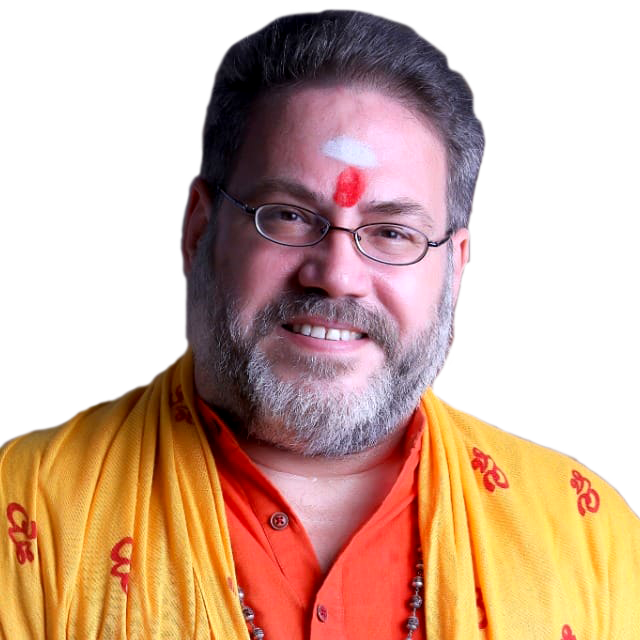Yoga Vidya Niketan (YVN), Member Institute of Indian Yoga Association successfully conducted its annual one-month Yoga Summer Course from May 1 to May 31, 2024. The course ran for one and a half hours daily across 41 physical centers around Mumbai and Navi Mumbai, extending…
Yogacharya Dr Ananda
Balayogi Bhavanani, Editor

The saying, “Man proposes, but God disposes” may be re-phrased as, “The Doctor treats, but nature alone heals”.
We need to understand that no one can heal us but ourselves!
The International Association of Yoga Therapists, USA has aptly defined Yoga Therapy as, “the process of empowering individuals to progress toward improved health and well-being through the application of the philosophy and practice of Yoga”.
Recent scientific evidence highlights the potential of Yoga to improve cardiovascular performance, while reducing negative affective states of stress, anxiety, and depression.
It has been suggested that given the broad therapeutic profile and potential of Yoga in heart disease, its application may prove to be an invaluable adjunctive component to existing cardiac rehabilitative interventions.
Relaxation is an essential prerequisite for healing to occur and we cannot heal when we are stressed. Conscious relaxation facilitates self-healing, and this may well be Yoga’s greatest contribution to modern healthcare.
This is all about inducing the “Relaxation Response”.
The Yogic approach to healing includes lifestyle, attitude, proper breathing and deep relaxation.
Dr. Swami Gitananda Giri, Founder of ICYER at Ananda Ashram in Pondicherry has postulated “Four-fold relaxation” as a systematic and conscious adoption of attitudes results in deep experiential states of relaxation. This includes:
- “Letting go” of our prejudices and preconceived notions.
- “Giving up” our stresses in a positive, relaxing and evolutionary process.
- “Giving in” and opening up to dictates of the inner mind.
- “Giving over” to the “Divine Will” in Ishwara Pranidhana and Bhakti Yoga.
It is pertinent that Yogic protocols for Cardiac Rehabilitation should always include elements of the following:
• Somato-psychic practices (Jathis, Kriyas, Mudras and Asanas) to improve cardio-respiratory health, musculoskeletal health and general wellbeing.
• Stress reduction programs to develop positive attitude, with fortification against stressors and learning to, “Do your best and leave the rest”.
• Pranayama to revitalize the whole system and enhance cardiac function, healing and healthy coronary circulation through the use of conscious, and deep breathing in different ratios with or without sound (Nada).
• A Satvic Yogic diet with less fat, more fiber and adequate hydration. Eat local, eat seasonal is how Swamiji Gitananda Giriji would advise.
• Relaxation through practices such as Marmanasthanam kriya (Part-by-part relaxation), Spanda-nishpanda kriya (Alternate segmental tensing and relaxing), Kaya kriya (Movement of limbs with breath) and Yoga nidraa (+ve body image and visualization)
• Introspective Pratyahara, Dharana and Dhyana techniques as appropriate to induce reflective introspection and reduce sensory over-stimulation and hyper-reactivity.
• Enhancement of the personal worldview through lifestyle modification, inculcation of Bhakti Yoga principles and the adoption of Karma Yoga principles.
• Practicing a healthy lifestyle is an important part of preventing and mitigating the effects of cardiovascular disease. This can involve exercising, maintaining a healthy weight, and not smoking.
• A heart-healthy diet that emphasizes fruits, vegetables, and whole grains and contains decreased amounts of sodium, fat, and cholesterol can also help lower the risk for the condition.
Research shows that people can lower their risk for cardiovascular disease by as much as 82 % simply by adopting sensible health habits, regardless of their age, background, or health status.
By integrating Yoga into the cardiac rehabilitation programs, we induce a sense of wholesomeness (salutogenesis) thus moving consciously from suffering (Duhkham) towards ease and wellbeing (Sukham).
















